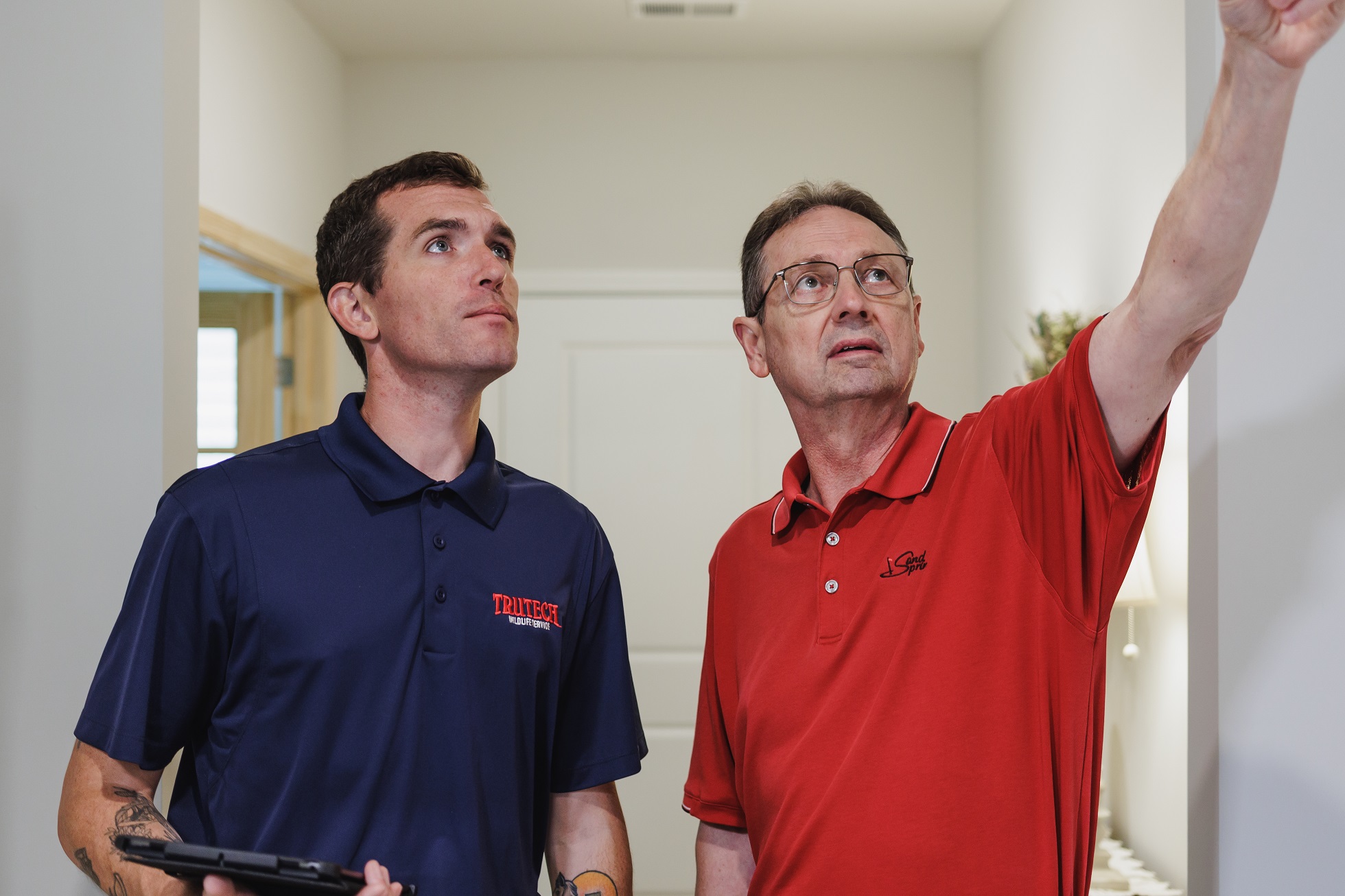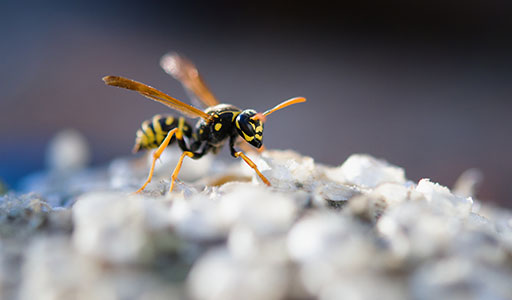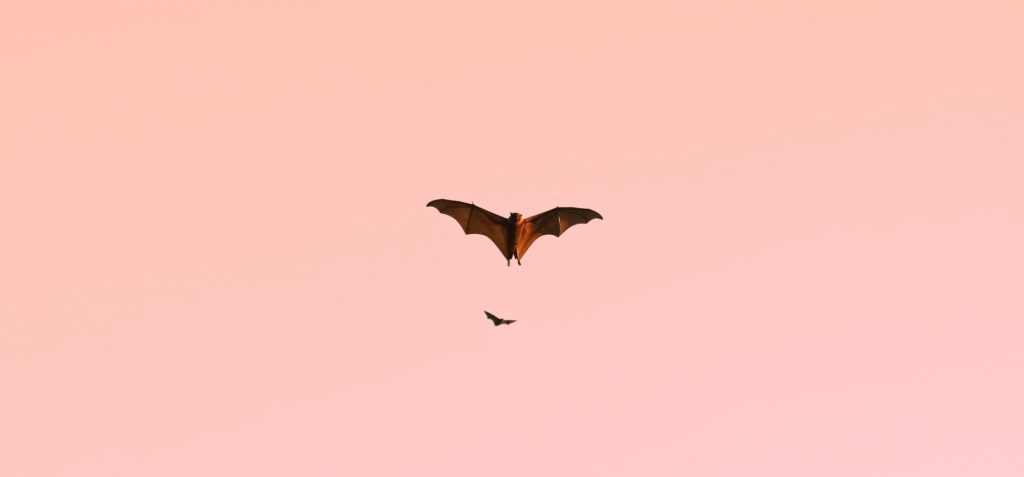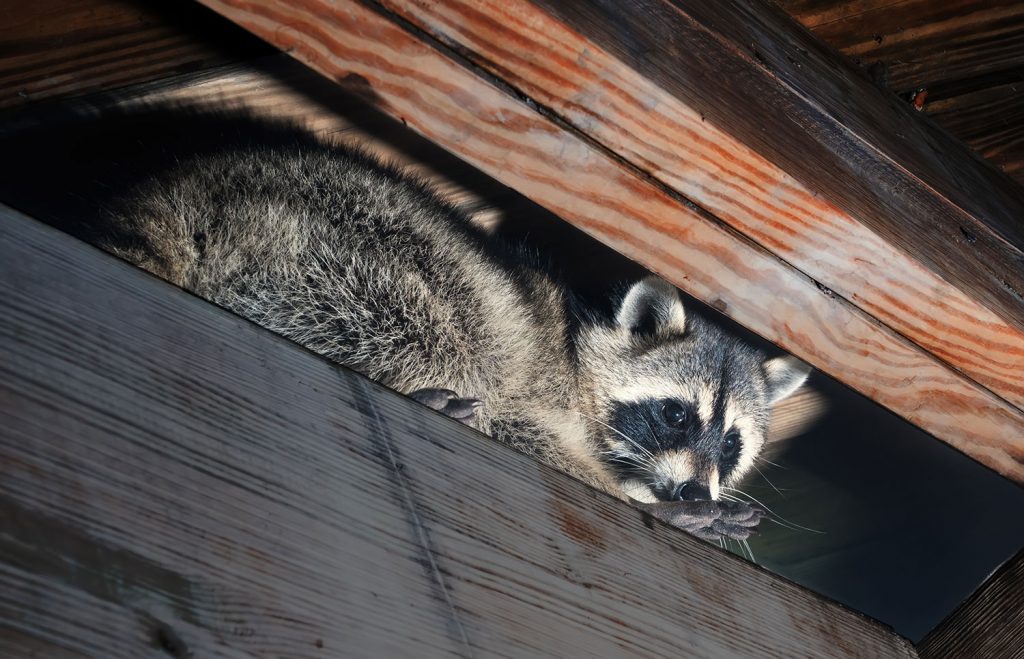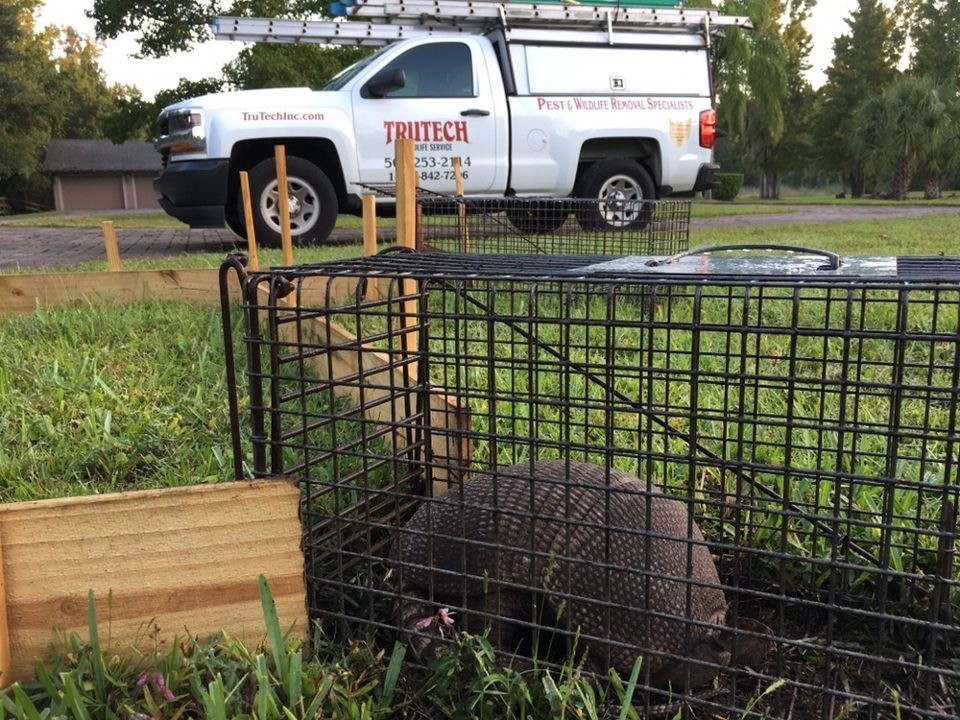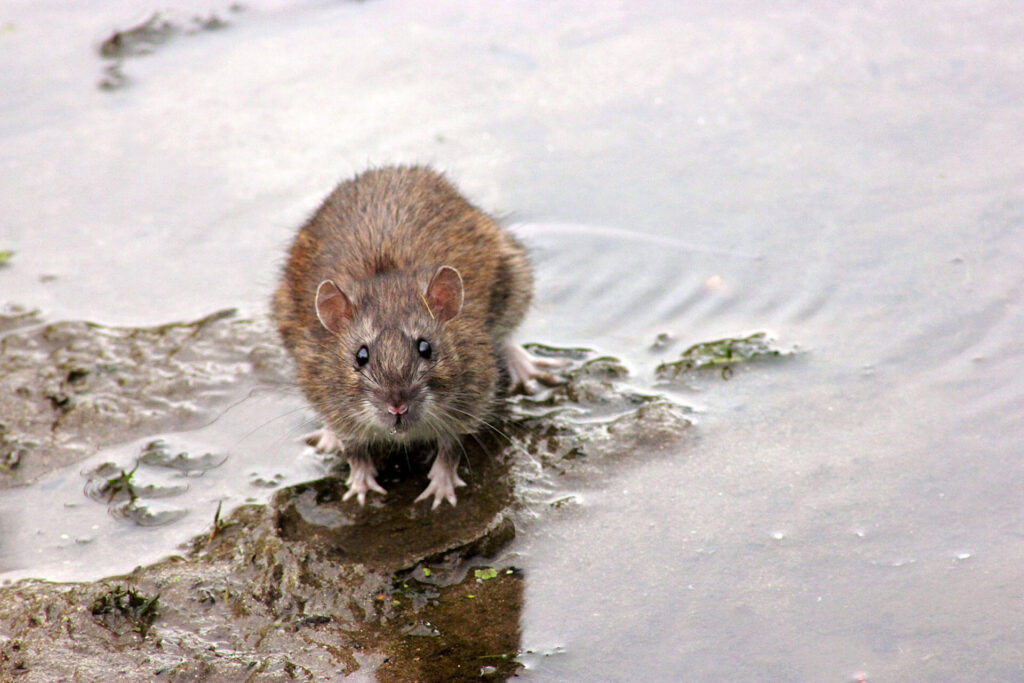North Florida has a variety of habitats for wildlife to enjoy including pine forests, hardwood forests, and an abundance of fresh water sources. As Jacksonville grows, the animals that call this area home will adapt to thrive in the urban and suburban habitats.
Homeowners generally face the most wildlife nuisance in the spring and fall. Although many animals cannot stand the sweltering summer heat of a Florida attic, homeowners may still face rodent and bat populations seeking shelter in the quiet areas of their homes. After all, animals still need food, water, and shelter no matter what season it is.
Unfortunately, when critters make their way into your home, it can present a big problem with the potential for extensive property damage. Plus, critters making their home in any residential or commercial structure pose a threat to the health of anyone within the building.
Most Common Sign of Nuisance Wildlife in Jacksonville, FL
Most of the animals we deal with give us or our customers a clue that they’re now tenants by making weird and scary noises.
The first one that comes to mind is scratching! Rodents and squirrels do a ton of scratching in the attics and inside of walls. Depending on what they’ve nested up against, this can cause screeching sounds as well.
Bats are another animal that makes weird noises. There are tons of chirping noises that they make when communicating. These sounds help us identify their areas of nesting. Usually in the soffits and small openings around eaves.
Raccoons have the most sudden noises and sounds of most of the animals that we deal with. Of course there’s knocking and banging. Once they’ve developed a routine in the attics or soffits, most of their movements are sudden and quiet.
Spring Nuisance Wildlife
During the spring mammals are looking for safe places to give birth. Raccoon breeding typically begins late in the winter, near the beginning of the calendar year. If the female doesn’t become pregnant during this time, she will go into estrus four months later, which will result in her birthing babies late in the summertime. Most cubs are born in April or May each year, and the average length of pregnancy for raccoons is just 63 days. The mother typically births one to seven cubs at a time, which are born with fur and are mobile.
Squirrels often will sneak into attics in the winter and spring months to have their young. Tree squirrels can have two litters a year. Young are born without fur and aren’t ready to leave the nest for at least a month and a half. By the time two months pass, baby squirrels are typically weaned and on their own.
Summer Nuisance Wildlife Problems in Jacksonville, FL
The hot summers drive most animals out of the attic except for bats. The hot, humid conditions are perfect for maternity roosts. The most common bats in Jacksonville homes are big brown bats, eastern red bats, little brown bats, hoary bats, Seminole, and gray myotis bats.
There is a 4-month “blackout season” where you cannot remove or exclude an area where bats are nesting. This time period is from April 15- August 15.
We secure a one-way bat valve over the hole, allowing the bats to exit the nest but not re-enter freely. We leave the valve up for 1-4 days, remove it after the bats have shown no sign of re-entry, clean the roosting area, sanitize and treat for ectoparasites.
Armadillos in the Yard
Armadillos are most active during the summer months. Because they sleep underground for the majority of the day, it is unlikely you’ll see an armadillo.
If you’ve observed any of these key indicators on your land, it might be a sign of an armadillo occupying your property.
- Shallow holes throughout your lawn that range between 3-5 inches wide and 1-3 inches deep
- Damaged underground pipes and/or wires
- Burrows located next to structures, sidewalks, bushes, or shrubs
- Cracks in your sidewalks, driveways, or building structure
- Uprooted plants
Stinging Insect Control
Bees and wasps are commonly found around Florida during the warmer spring and summer months.
Any pest control situation requires an industry expert, and a swarm of bees is no exception. Don’t try to take care of the hive yourself using an over-the-counter pesticide. Not only is it ineffective, it will only aggravate the situation and put you in harm’s way. Maintain your distance and leave it to our bee removal experts. Contact us today!
Fall Nuisance Animals in Jacksonville, FL
Two animals in particular I’d like to highlight are squirrels and raccoons. Both animals love to harbor and nest inside of homes during the cooler months and have similar ways of entering homes. Most notably are the roof returns and soffit vents. In my opinion, these are the two most common areas of entry for both animals.
Roof Returns
Soffit Vents
Raccoons and squirrels can get into your house through the soffit vents too. They will either push their body against it, or they can break it or gnaw through it. Customers will look at a small 4×2 or 4×4 soffit vent and think how in the world can a 20 lb raccoon get in here.
Raccoon bodies are usually small and fur make up most of depth of what we see. The same can be said for squirrels. I’ve seen them fit into openings as small as 1 ½ or so.
There are many areas for them to access such as gable vents, roof vents, chimneys, etc. the list goes on and on!
Winter Pests in Jacksonville, FL
It’s getting cooler in Florida, so we expect to start getting calls for animals getting into homes soon. It never gets cold enough for animals to hibernate in Jacksonville, FL. Besides, the most common nuisance animals do not hibernate.
As the weather cools down, animals like squirrels and raccoons will look for a warm shelter.
Animal Removal and Trapping in Jacksonville, FL
I’d also like to note that trapping should be involved with raccoon removal because they will tear back into a home if they have the opportunity. If there’s a mother with babies involved, no amount exclusion is keeping her from attempting to get back into the home. This is where the destruction of property can grow and become very expensive to repair.
Areas We Serve in Jacksonville, FL

Derrick Clay
Derrick Clay is the district manager for Jacksonville and Orlando, FL. He joins Trutech Wildlife Service with over thirteen years of experience in the pest control.




